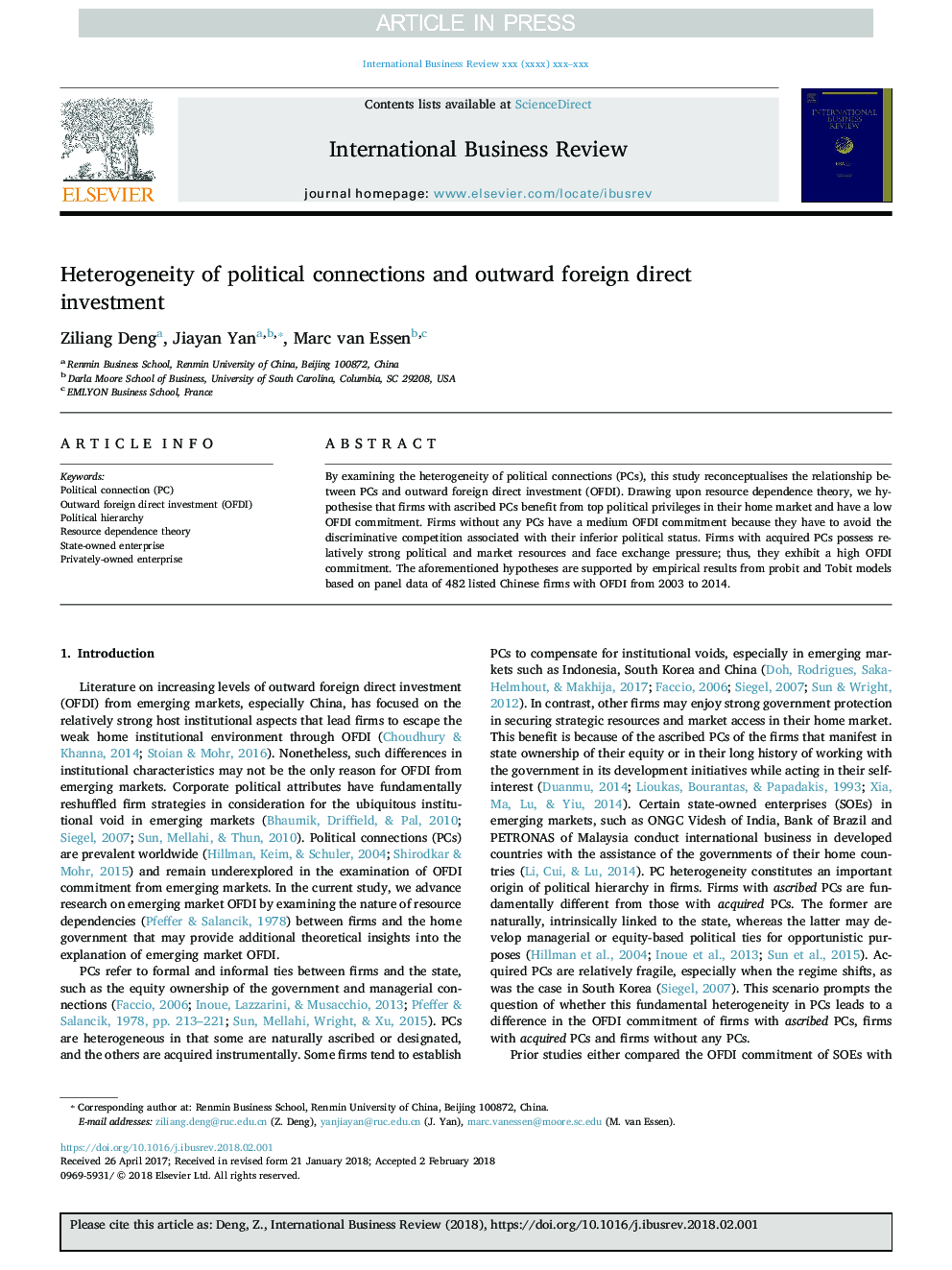| Article ID | Journal | Published Year | Pages | File Type |
|---|---|---|---|---|
| 7412593 | International Business Review | 2018 | 11 Pages |
Abstract
By examining the heterogeneity of political connections (PCs), this study reconceptualises the relationship between PCs and outward foreign direct investment (OFDI). Drawing upon resource dependence theory, we hypothesise that firms with ascribed PCs benefit from top political privileges in their home market and have a low OFDI commitment. Firms without any PCs have a medium OFDI commitment because they have to avoid the discriminative competition associated with their inferior political status. Firms with acquired PCs possess relatively strong political and market resources and face exchange pressure; thus, they exhibit a high OFDI commitment. The aforementioned hypotheses are supported by empirical results from probit and Tobit models based on panel data of 482 listed Chinese firms with OFDI from 2003 to 2014.
Related Topics
Social Sciences and Humanities
Business, Management and Accounting
Business and International Management
Authors
Ziliang Deng, Jiayan Yan, Marc van Essen,
